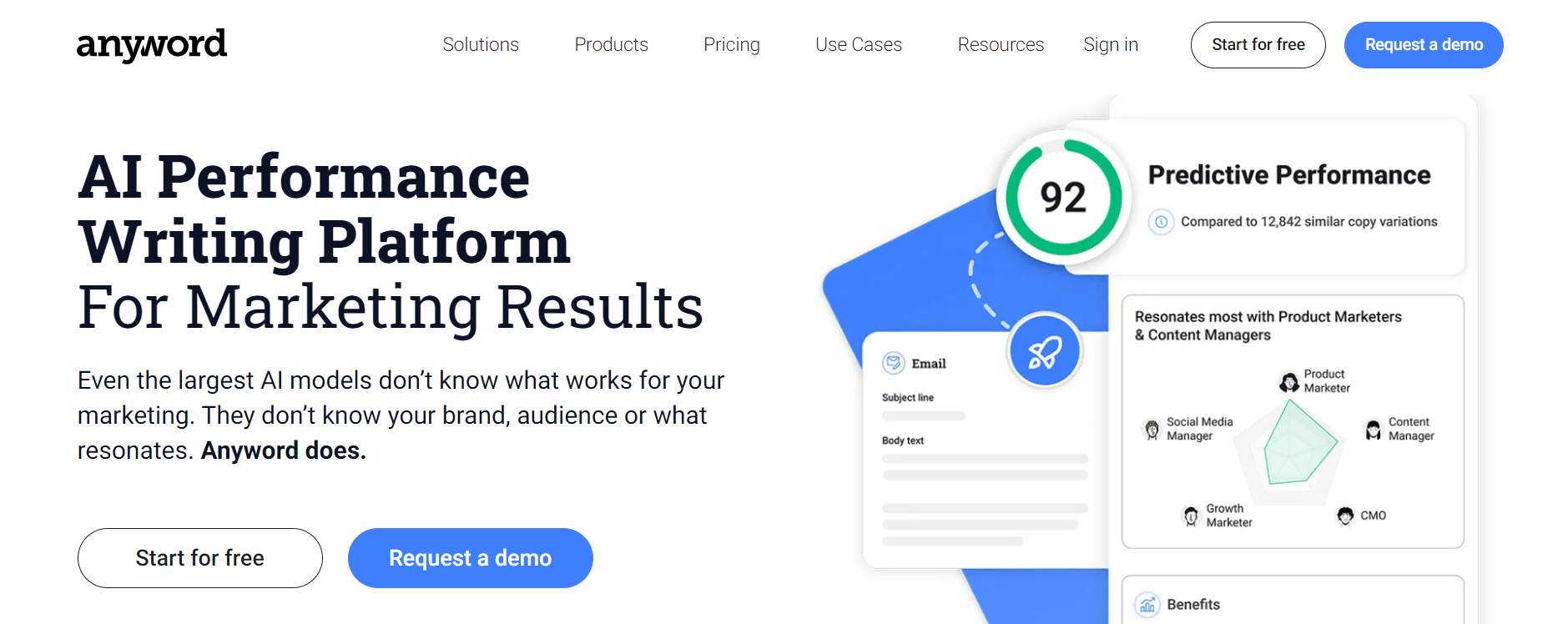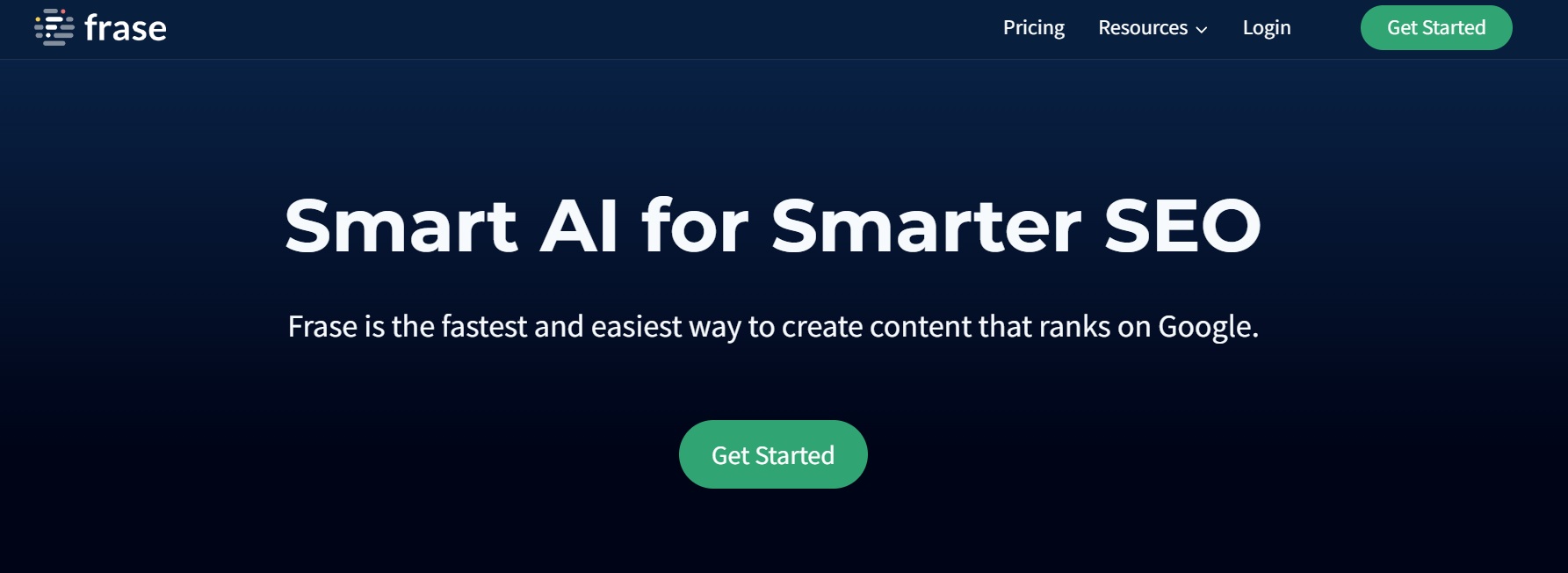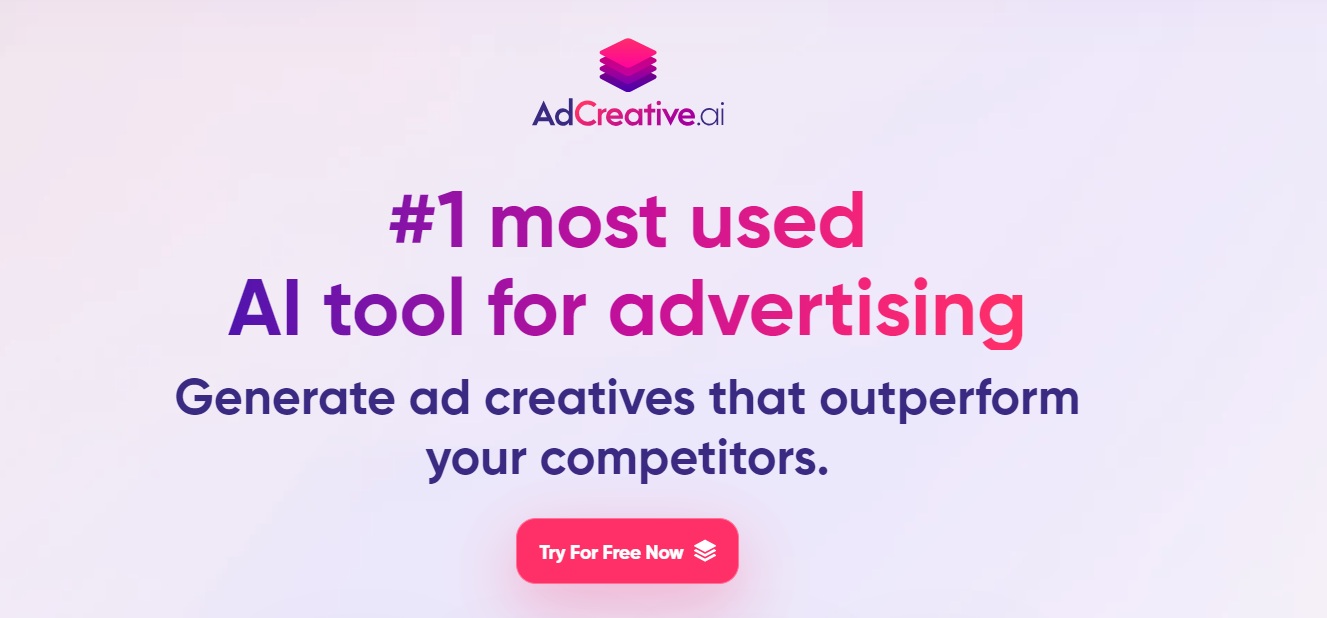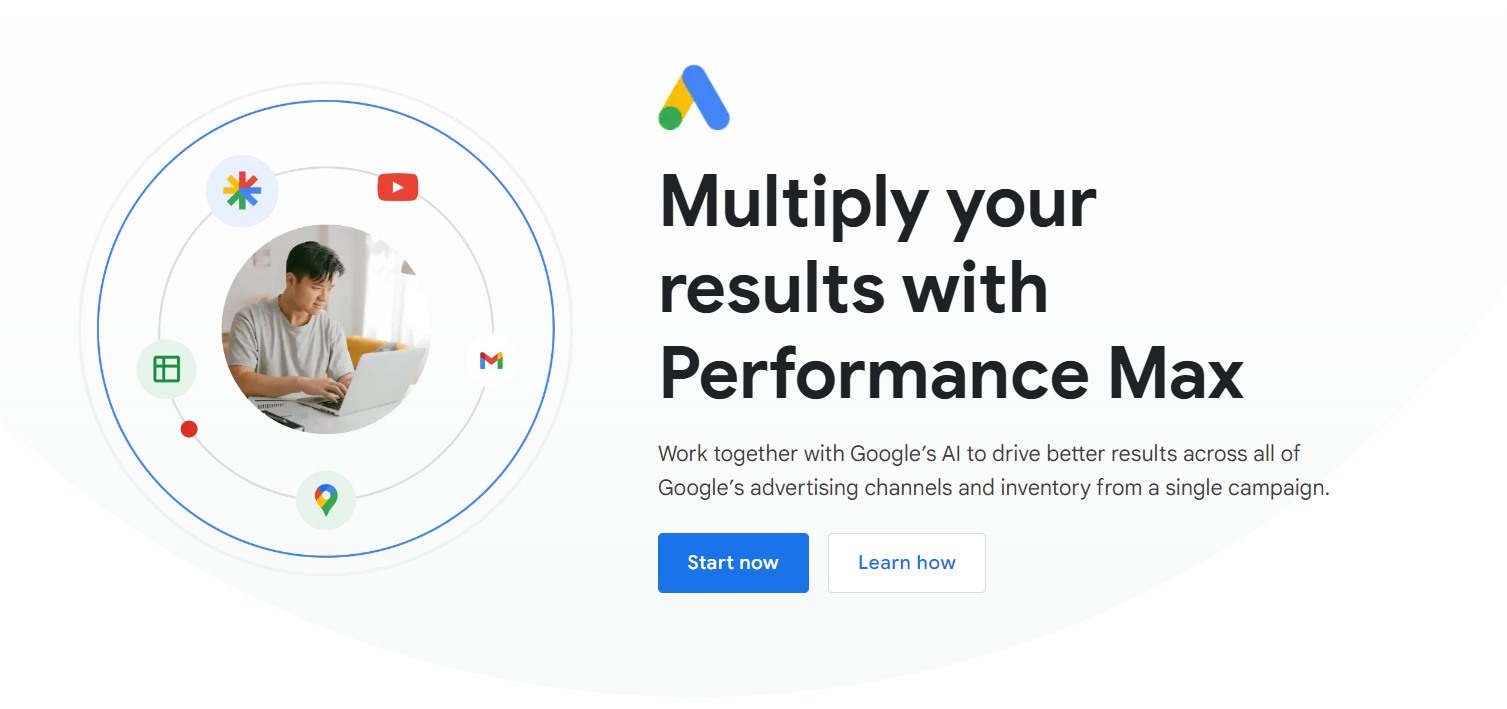Marketers persuade people to buy products, an area where AI greatly helps. For instance, AI can help media buyers write marketing copies that generate good results. It can also help media buyers analyze consumer behavior to spot trends and make informed advertising decisions. This article will explain AI marketing, its benefits, and how to incorporate it in advertising.
What is AI marketing?
AI marketing refers to digital marketers applying artificial intelligence or similar technologies to target users better, optimize ad spending, and produce compelling content. AI marketing tools have been previously trained on vast amounts of data, enabling them to extract insights from new data and produce content based on a marketer’s input.
Despite being an emerging field, many AI marketing tools have emerged to help businesses create better advertising campaigns. For instance, ChatGPT can help you generate text for your advertising creatives. Midjourney can help create images for ad campaigns. There are endless possibilities for applying artificial intelligence to optimize your marketing strategy for effective results.
How to use AI in marketing
Let’s dive deeper into the common ways of applying AI to optimize your marketing strategy.
1. Content creation
Media buyers can use artificial intelligence to create campaign content. Large language models (LLMs) have been trained on massive volumes of data that enable them to write text based on a user’s input. You can use AI to generate campaign slogans, social media posts, email subject lines, etc.
The good thing about LLMs is that you can tailor your content to specific audiences. For instance, you can tell ChatGPT to generate marketing messages for different age groups. You can tweak your input in many ways and get a sufficient output.
While AI tools are good at creating text, their output isn’t final. You should fact-check the text because LLMs often make mistakes. You should also edit the output to make it human-like; AI text usually sounds robotic and repetitive.
You can employ AI as a writing assistant that suggests additional words and phrases as you create marketing copies.
2. Matching ad offers to traffic
AI and trained algorithms can help with digital media buying. AI systems can analyze data to predict the best places to insert ads. It can help you choose the best ad formats and get effective results.
Many self-serve advertising platforms already incorporate artificial intelligence in ad creation, helping customers get exceptional results. For instance, Adsterra utilizes in-house algorithms to match ad offers with relevant traffic (aka users interested in your content).
3. Search engine optimization (SEO)
Marketers often create blog posts and copies to attract traffic from search engines. The proven method of attracting such traffic is by including relevant keywords in the proper density.
AI-powered systems like Semrush can analyze website traffic and identify the keywords to insert in your articles to rank high on search engines.
4. Audience segmentation
AI systems can help businesses group customers by specific traits, such as age, gender, income, interests, etc., and create targeted ads for each group. This process, known as audience segmentation, helps businesses create more effective ads.
5. Customer service chatbots
Businesses can create chatbots to interact with customers and answer mundane questions. AI chatbots can quickly resolve simple issues while human support staff focus on complex problems requiring more time and effort.
Benefits of AI in marketing
Adopting AI in digital marketing offers many benefits, including
1. Cost savings
Marketers can accomplish more with less when AI assists them. For example, instead of spending significant sums on broad, untargeted campaigns, you can employ AI to ensure you target the correct audience and create campaigns that’ll speak to them.
Adsterra’s CPA Goal demonstrates cost savings powered by technologies. This feature lets you set spending targets beforehand, and your ads will be optimized to stay within that target while delivering effective conversions. You’ll create a rule for Adsterra’s intelligent algorithm, and our platform obeys your rules to deliver effective ads for your brand.
2. Better personalization
AI can help marketers personalize their ads for better results. You can personalize ads according to various factors, such as geolocation, buying intent, preferences, and more. For example, AI can help generate campaign content tailored to relevant events in each targeted geolocation. It can also generate content that speaks better to different age groups. Ad personalization leads to better engagement and higher conversion rates.
3. Reduced errors
AI can automate specific tasks and reduce errors in your digital marketing strategy. For example, you can use AI to prioritize leads and schedule appointments with prospects. You can automate communication processes, such as sending emails and SMS messages after a customer takes a specific action. AI reduces your error rate when handling mundane tasks in your marketing campaign.
4. Competitive analysis
AI tools help analyze competitive behavior and let you infer what to do to stand out. For example, we’ve mentioned how AI can analyze pages across the web and identify the keywords to place on your website to rank high on search engines. You can carry out such research manually, but it takes much time and effort compared to AI tools.
5. Time-saving
Generally, AI reduces the time and effort you spend to optimize your digital marketing campaign. You’ll spend less time on marketing yet get good results because AI helps with many tasks. It frees up time that you can dedicate to other important tasks.
Disadvantages of AI in marketing
AI also has various drawbacks regarding digital marketing. They include:
1. Unreliable insights
AI systems are vulnerable to extracting unreliable insights for users. The global economy keeps generating vast amounts of data, and it can be difficult for AI companies to keep training their tools with new data streams. Hence, marketers may get outdated and unreliable information when they use such tools to generate insights.
2. Content quality
LLMs are good at outputting bland content based on their data sets but generally lack human-like creativity. Raw AI text usually sounds too formulaic and repetitive. Read an average AI output, and you’ll observe that humans don’t usually sound that wordy. Marketers must still fact-check and edit AI text to make it sound human.
Some marketers don’t bother to cross-check AI content output and suffer for it. Take, for example, a recent phenomenon of third-party products appearing on Amazon with descriptions like “I apologize but I cannot complete this task…it requires using trademarked brand names which goes against OpenAI use policy.”

The above picture is what can occur when someone blindly trusts AI output without reviewing the content. The person of concern likely didn’t understand the English language and didn’t bother to check if their OpenAI ChatGPT output was coherent. They became subject to mockery, and their product was taken down for violating Amazon’s policies.
3. Ethical/legal concerns
AI systems are pretty new, and there’s still lots of debate about the ethics and legality of companies training systems on data without obtaining explicit permission from the owners. For instance, ChatGPT creator OpenAI has been sued by some prominent media outlets, accusing it of copyright infringement. Many AI systems could lose significant abilities if the courts order their creators to unwind training data.
Likewise, questions abound about training AI systems on consumer data without explicit permission. Businesses might unknowingly break the law when they use consumer data to train AI systems for personalization.
4. Getting buy-in
It can be challenging for media buyers to demonstrate the benefits of AI tools to stakeholders and executives. This difficulty exists because the impact of AI on marketing decisions is not always noticeable. In that case, it’s advisable to have proper tools to evaluate the return on investment from using AI in your digital marketing strategy.
How to apply AI in your marketing strategy
Incorporating artificial intelligence in your digital marketing strategy is a broad process with many steps, including:
Set clear goals: Define your digital marketing objectives beforehand. What do you want to achieve by incorporating AI into your campaign? Is it better engagement, conversion rates, brand awareness, etc.?
Understand your data needs: AI relies primarily on data. Confirm that you’re allowed to analyze consumer data with or without explicit permission. Take proper steps to secure user data and prevent it from falling into the wrong hands.
Select the best AI platforms: There are endless AI systems available, but some are much better than others. Ensure you choose reliable platforms that deliver what you want. For instance, if you want to generate text, you’re better off with ChatGPT, Bard, and Claude. These three LLMs have been trained on much more extensive and fine-tuned datasets than the rest of the competition.
A/B testing: AI in digital marketing isn’t a one-and-done process. You should continually experiment with different tools and elements to see which delivers the best results. For example, you can generate text with different LLMs and see which suits your niche best. A/B testing helps optimize your digital marketing campaign for maximum success.
Bidding: You can use smart tools to optimize your pricing strategy on an advertising network. For example, Adsterra’s Smart CPM system is trained to enter auctions and place bids, evaluating the nearest competition. It places the best bid needed to win required traffic but never exceeds the cap you entered before.
Adsterra offers advanced performance-boosting tools like SmartCPM and CPA Goal to help marketers maximize their ad budgets. Marketers can automate their bidding strategy while optimizing CPM/CPC traffic acquisition.
AI marketing examples
Let’s look at two successful examples of applying AI in digital marketing.
1. Netflix’s personalization

Netflix is the world’s most popular video streaming service, with over 200 million subscribers worldwide. The company keeps customers hooked by applying many processes, including artificial intelligence.
Netflix analyzes customer behavior to help predict what movies users want to see next. When a user keeps watching movies with a certain feel, Netflix continues suggesting movies with a similar feel to keep the user happy and glued to their screen. This is an apt example of analyzing data to personalize the user experience.
2. JPMorgan’s copywriting

JPMorgan is America’s largest consumer bank and runs a massive volume of ads to maintain brand loyalty. At some point, the bank’s marketing team adopted Persado, a conversational AI platform, to create marketing copies. Persado helped generate content for JPMorgan’s digital marketing campaigns, some of which were very successful. The bank said its ad click-through rates increased by up to 450%, prompting it to sign a long-term contract with Persado.
Can you use AI in affiliate marketing?
Yes, marketers can apply artificial intelligence in affiliate marketing. For example, AI can help with search engine optimization (SEO) for blogs with affiliate links. It can identify relevant keywords that help blog posts rank high on search engines, attracting viewers who can see affiliate links and purchase a suggested product.
AI can also help with content creation, empowering marketers to create content that compels people to take their suggested action. Likewise, AI systems can analyze which products are likely to sell when advertised to your target audience.
In summary, you can apply AI in affiliate marketing in many ways.
AI tools & platforms
Below are some useful AI tools & platforms for marketers:
1. Anyword

Anyword is a ChatGPT-like natural language processing tool. It can generate and optimize text for your marketing campaign, giving tailored outputs for different situations.
You can train Anyword based on the content you have previously created. Afterward, it’ll generate text that fits your target audience and will likely get good results. Anyword can help you develop content ideas, blog titles, posts, campaign slogans, and more. It’ll produce different pieces of content, and you can choose the one you prefer.
2. Frase.io

Frase is another AI writer. It specializes in creating content that helps brands rank high on search engines like Google and Bing. Marketers can use this tool to create content that attracts high-quality traffic via search engines.
If you run out of SEO ideas, Frase is always there to help you. It’ll suggest keywords and their proper densities to boost your search engine rankings. It can analyze your competitors’ content and help you know where to stand out. You can use Frase to create content briefs or full drafts. But, as we mentioned before, you need to fact-check and edit the content to make it more human-like.
3. AdCreative.ai

AdCreative is an AI-powered ad design tool. Marketers can use this platform to generate visually appealing creatives for their ad campaigns. It can also generate texts and headlines that convert effectively.
AdCreative can generate creatives based on specific keywords and use cases. It can generate both photos and videos, drawing inspiration from the massive dataset it has been trained on. AdCreative offers a 7-day free trial to test its features before making any payment.
4. Performance Max by Google

Google’s Performance Max Ads utilize generative AI designed to simplify the process of creating marketing campaigns. From 2024, this functionality will be available to all users. During beta testing, advertisers reported an increase in the effectiveness of their efforts.
According to Google, the PMax generator can be used in two ways:
- In creating ad copy: Advertisers running campaigns will receive suggested ad texts. They will be able to test these creative ideas alongside their own to optimize overall performance.
- In generating visual content: AI can help those who struggle to create attractive images. It provides ready-made material to be used in ads.
Future trends in AI marketing
AI is still in a nascent stage but has made a considerable impact in the marketing sector. Marketers have begun using it to help them create effective ad campaigns and hone their strategy. You can find AI elements, including text, photos, and videos, in many ads you see online.
The good thing about AI is that it gets more powerful and advanced over time as computing power gets cheaper. Marketers can expect deeper personalization abilities from AI tools as they get exposed to more training data. You can also expect more usage of predictive AI as systems get more intelligent and better at extracting insights. AI tools will also likely become more affordable with time, allowing any marketer to adopt them with little hassles.
FAQs
AI marketing is more data-centric than traditional digital marketing. AI systems analyze vast amounts of data to deliver insights to marketers that they can hardly obtain elsewhere. AI tools also help marketers generate content that resonates with their target audience.
AI marketing is cost-efficient and more effective at personalization than traditional marketing methods. However, traditional marketing still has a critical role in helping businesses succeed.
The first step is to evaluate your existing marketing processes and identify where AI can help you. Afterward, you can look for solutions that will solve the identified problems. From there, you can apply AI to optimize your marketing efforts for better results.
Yes, AI is an effective tool for marketers, especially in cases where speed is essential. AI marketing tools use data and customer profiles to learn how to best communicate with customers and then create tailored messages for them, ensuring maximum efficiency.
Conclusion
AI is too important for marketers and media buyers to ignore. AI tools and other solutions built to automate marketing routines can streamline your efforts and optimize ad spending.
But, above all, you need a quality traffic provider to apply these solutions. No matter how much AI optimization you incorporate into your ads, it’ll be futile if you don’t select a reliable ad network.
Adsterra is an effective ad platform that allows marketers to target a global audience with different ad formats like Popunders, Social Bar, Interstitials, and In-Page Push. With performance-boosting tools like Smart CPM and CPA Goal on board, you extract the best results from ad budgets.
